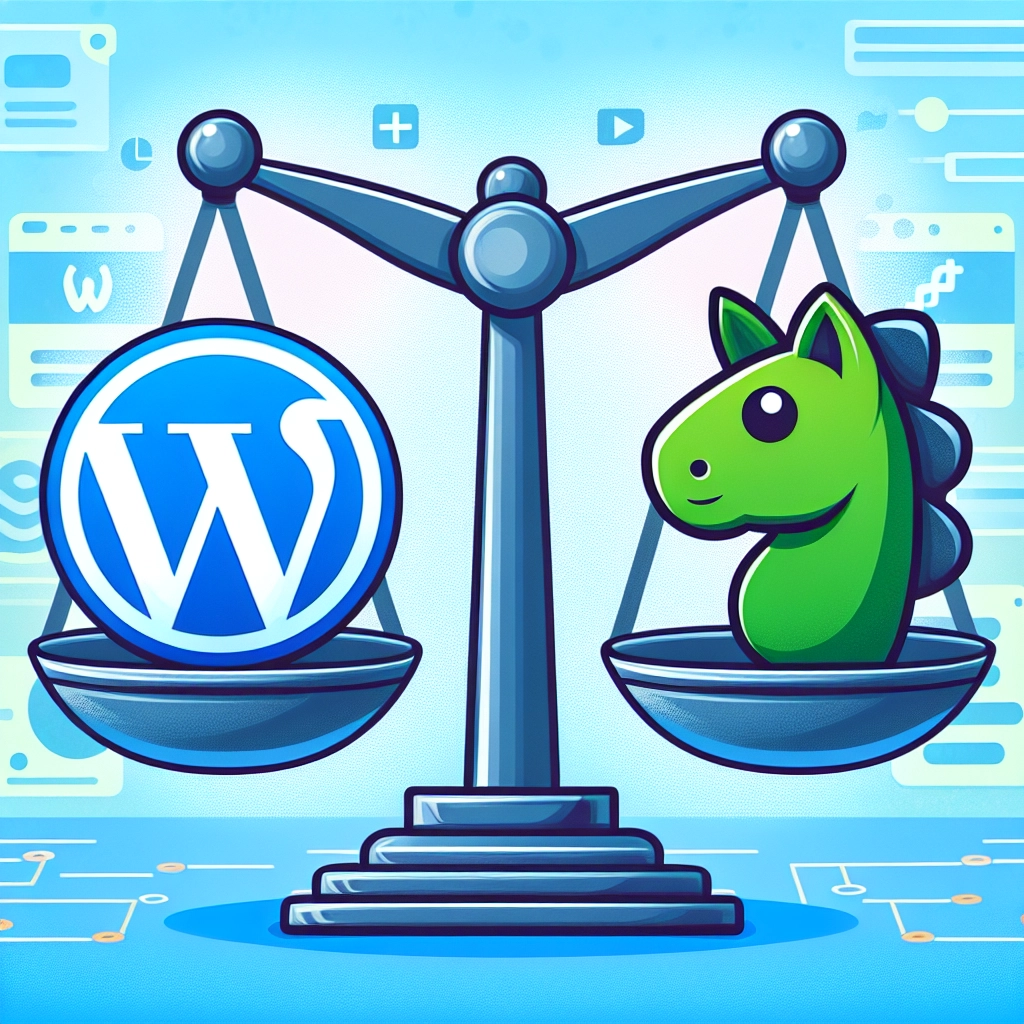A friend recently asked me whether to use WordPress or Django for a new website. This common query highlights the crucial significance of selecting the appropriate content management system (CMS) for shaping your online endeavors.
While I favor WordPress for website development, I have also explored Django CMS. My experience includes assisting others in choosing between the two platforms and even deploying Django for personal projects. Here, I will share insights into the strengths and weaknesses of both platforms, explaining why WordPress often remains a superior choice for most website needs.
Overview: WordPress vs. Django CMS
Both WordPress and Django CMS are robust content management systems, yet they cater to different requirements. The table below delineates their key attributes:
| Feature | WordPress | Django CMS |
|---|---|---|
| Purpose | Blogging and general sites | Developer-oriented, complex enterprise applications |
| Technology | PHP, MySQL | Python, Django Framework |
| Ease of Use | Very user-friendly | Steeper learning curve |
| Customization | Themes and plugins | Custom code with Django apps |
| eCommerce | Via plugins like WooCommerce | Requires additional software |
| Security | Needs updates and plugins | Strong built-in security |
| Scalability | Requires optimization | Highly scalable |
| Community | Large and diverse | Smaller, developer-focused |
| Target User | Non-developers | Developers |
Ease of Use
When it comes to user-friendliness, WordPress stands as the clear winner. It allows users, even those lacking technical expertise, to get started quickly. Setting up a basic blog can take only a few hours, thanks to its intuitive block editor that resembles digital Lego blocks. It features one-click installations offered by many web hosts, simplifying the launch process.
In contrast, Django CMS is more suited for developers. It requires knowledge of coding and web development concepts, often leading to frustration for beginners. This system utilizes a straightforward content editor but generally necessitates coding for more advanced features and customizations.
Customization Options
While WordPress offers extensive customization capabilities for non-developers through themes and plugins, Django CMS is code-centric, appealing primarily to developers. Django offers greater flexibility for custom solutions but lacks the ease of modification that comes with WordPress’s rich ecosystem.
Content Management
WordPress excels in content management, having evolved from a blogging platform. Its block editor simplifies adding various media types, organizing content through categories and tags. A built-in media library allows effortless management of images and videos, and user roles can be managed to ensure team collaboration.
Django CMS provides a basic content editing interface, but its lack of user-friendliness can hinder non-technical users. While it supports multilingual capabilities and permissions, customization often necessitates additional coding.
eCommerce Capabilities
For online selling, WordPress allows quick eCommerce setup through plugins like WooCommerce, enabling users to easily add products and manage sales. Alternatives like Easy Digital Downloads provide user-friendly options for digital products.
Conversely, Django requires more effort to build an eCommerce platform, demanding a higher level of custom development. While its built-in tools provide substantial flexibility, they are not practical for beginners.
Performance
Django CMS generally offers better out-of-the-box performance due to its efficient coding practices. However, with proper optimization, WordPress can also perform exceptionally well. Caching plugins can enhance WordPress’s speed, while Django’s architecture is adept at handling high traffic volumes.
Security
Django CMS benefits from its built-in security measures, which prevent exploitation. Users must still adhere to best practices, including regular updates and secure coding. WordPress can be secure with diligent management, yet it remains vulnerable to attacks if not well-maintained.
Community Support
WordPress boasts a massive community, providing abundant resources for troubleshooting and learning. In contrast, Django CMS’s smaller, more concentrated community may yield high-quality technical assistance, but users might face challenges in locating information.
Cost
Both platforms are free, but the necessary costs diverge sharply. WordPress users can expect affordable hosting options and numerous free themes and plugins. Development costs for WordPress projects generally scale with the complexity and features needed.
Django CMS, however, typically requires more expensive hosting and professional development, leading to higher overall costs—often thousands for initial setup and ongoing maintenance.
Conclusion
For most users, especially those lacking coding experience, WordPress is the preferable choice for easy website creation. It is efficient, versatile, and supported by an extensive community.
For those needing complex, customizable web applications, Django CMS may prove beneficial, albeit with a higher learning curve and cost.
Evaluate your technical abilities and project requirements carefully before deciding on a platform, keeping in mind your needs for speed, ease of use, customization capabilities, and support.
Welcome to DediRock, your trusted partner in high-performance hosting solutions. At DediRock, we specialize in providing dedicated servers, VPS hosting, and cloud services tailored to meet the unique needs of businesses and individuals alike. Our mission is to deliver reliable, scalable, and secure hosting solutions that empower our clients to achieve their digital goals. With a commitment to exceptional customer support, cutting-edge technology, and robust infrastructure, DediRock stands out as a leader in the hosting industry. Join us and experience the difference that dedicated service and unwavering reliability can make for your online presence. Launch our website.

